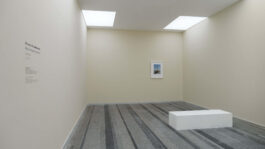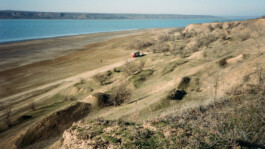
Even Further
Information:
2020, Installation: custom mechanical music box, 4k video 15’14”, color
This installation encompassing video, text, and sound was conceived for the 2020 edition of PinchukArtCentre Prize nominee exhibition in Kyiv, Ukraine. The work delves into the multicultural roots of the artist’s family, particularly his Greek background on his father’s side and his Jewish roots on his mother’s side, in addition to his family’s ties with the Odesa region, which numerous imperial forces have sought, and some would argue continue to seek, control over.
The video, shown on a screen inserted into the wall, sees a tour group traveling by bus through the Kuyalnitsky estuary on the outskirts of Odesa, whose caves Jewish and Greek residents, including the artist’s family, took refuge in during the outset of World War II.
In the opposite corner, a music box plays a song dating to the early 20th century. Both Greeks and Jews have their own songs based on this tune. But they are entirely different in meaning: the Greek version is about love for a beautiful girl, and the Jewish version is about sending a young man to war. The author images the possibility of Jews and Greeks hearing this song in this scenic, yet hostile landscape.
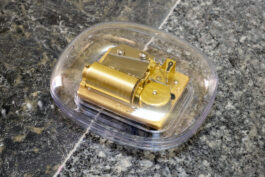
Even Further, 2020, Installation: custom mechanical music box, presented at PinchukArtCentre, Kyiv
The work takes its title from Psychic TV, underscoring Karabinovych’s urge to twist together personal history, cult subcultural personalities, and familiar, yet fringe terrains. A text, inserted in another corner of the room is based on Walter Benjamin’s “The Storyteller.”
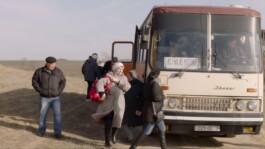
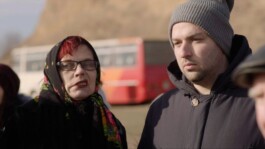
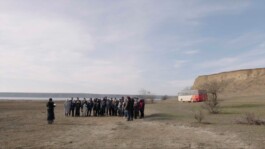
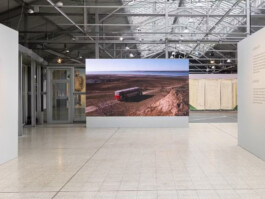
Even Further, 2022; Presented in ‘Worth Fighting For’, Cologne. Photo: Pat Verbruggen.
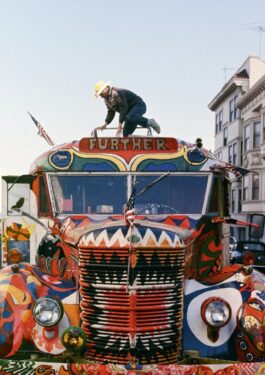
The Merry Pranksters barreled around the US on a modified 1939 school bus nicknamed "Further." Painted - and frequently repainted - with vibrant psychedelic imagery, the bus crossed the country to the New York World's Fair in 1966, before returning.(C)Ted Streshinsky Photographic Archive, Bancroft Library, U.C. Berkeley
Even Further refers to a tale told in Thee Psychick Bible of an “Even Furthur” bus driven by the cult English band Psychic TV, who were inspired by the name “Furthur,” which was given to another bus, the Merry Prankster, driven by the American countercultural icon Ken Kesey.
My Even Further consists of three elements — video, sound and text — which seek to complement each other.
The film begins with a bus entering a fixed frame.
People step off and they follow a guide, of sorts, who leads them towards the water. The group stands in the distance at the water’s edge, listening to the guide tell her story.
When she is finished, the crew boards the bus and leave the frame.
The moment the bus leaves the frame, a melody begins to play, performed by a mechanical music box located in the far corner of the exhibition space.
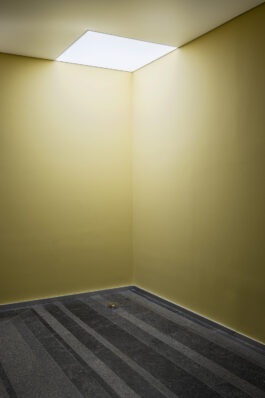
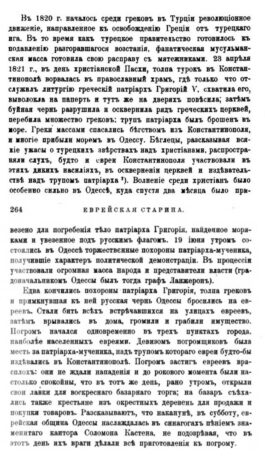
1903. Еврейская Старина в Одессе. (К истории евреев в Одессе в первое 25-летие ея основания)
The music box plays a melody, the authorship of which cannot be reliably discovered. There is a Greek song about love, and there is also a Jewish song about a young man’s farewell before departing to fight in the Russo-Japanese war.
Both were written about 110 years ago, and became widely popular. Naturally, researchers, depending on their national preferences, attribute the authorship to the Greeks or the Jews.
In general, the relationship between Jews and Greeks, especially in the south of Ukraine, is filled with vivid and dramatic episodes. The first Jewish pogrom in the Russian Empire took place in Odesa in 1821, and was initiated by the Greek population, who spread the rumor that the Jews had killed the patriarch in Constantinople.
My interest in Greco-Jewish relations is due primarily to my background. On my mother’s side, I have many Jewish relatives. My father’s side of the family is Greek. Examining the similarities and differences between the fates of Greeks and Jews, I wondered, where could my Greek and Jewish relatives hypothetically have met?
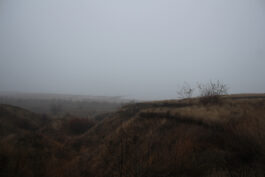
Kuyalnitsky estuary, research for the project, 2019
Perhaps this could happen on the shores of the Kuyalnitsky estuary, whose network of caves many Odesa residents took refuge in during outset of World War II, including my grandmother’s family.
Perhaps when they met they could each have sung the same song. A song each already knew.
Exhibitions
2024 Prague, Muzeum literatury
2024 60th Venice Biennale, Collateral Event
2023 Freiburg, Delphi Space
2022 Paris, Maia Muller Gallery
2022 Antwerp, Tic Tac
2022 Paris, Théâtre de la Ville
2022 Gent, SMAK
2022 Brussels, Jewish Museum
2022 Stockholm, Moderna Museet
2022 Cologne, Campus M
2022 Basel, Liste
2022 Munster, Kunsthalle Münster
2022 Milan, Castello di Rivoli Museo d’Arte Contemporanea
2021 Dnipro, Center for Contemporary Culture
2021 Holzmarkt 25, Berlin
2020 Kyiv, PinchukArtCentre
Related texts
Press

